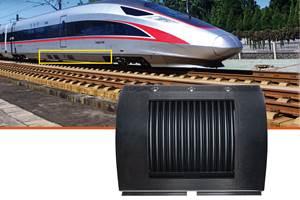ReFrame project commits to recyclable CFRP aircraft structure research
German inter-university network HP CFK is investigating recyclable sandwich structures, developing sustainable mobility concepts for applicability in safety-critical aircraft components.

Recycled raw material for the production of CFRP sandwich structures. Source | The Institute of Manufacturing Technology and Machine Tools (IFW)
The reFrame project, which aims to optimize the recycling of carbon fiber-reinforced plastics (CFRPs) to be incorporated into aircraft construction has been approved. The interdiciplinary project was initiated by German partners the Leibniz University of Hanover, the Technical University (TU) of Braunschweig, the Technical University (TU) of Clausthal and the Private University of Applied Sciences Göttingen (PFH). This €4.7 million project is being funded by the European Regional Development Fund (ERDF) and the state of Lower Saxony, and will run for the next 3 years.
“The reFrame project marks a significant step forward on the way to emission-free air transport and more resource-efficient production technologies,” says Professor Berend Denkena, head of the Institute of Manufacturing Technology and Machine Tools (IFW). “Important focuses are the development of laser-based laying technologies for processing high-performance thermoplastics and recyclates, as well as the use of artificial intelligence for the precise monitoring and optimization of layup processes.”
Fiber-reinforced plastics (FRPs) play a central role in modern aircraft construction, but material reuse in this field has been challenging. ReFrame aims to enable a closed carbon fiber recycling loop while maintaining the high-performance potential of carbon fibers. This is particularly paramount, as performance losses cannot be accepted for such high-performance components. Particular attention is to be paid to sandwich construction, which, at the end of service life, have not yet been able to be reused in equivalent structural components.
Through this project, partners will investigate, develop and implement the combination of CFRP sandwich structures with a core made of recycled raw material from thermoplastic cover layers. Since the cover layer and the core will be the same raw material, the entire structure will be able to be recycled and processed into a new core.
The inter-university research network HP CFK (Leibniz University Hannover, TU Clausthal and TU Braunschweig) at the Stade site are covering the project’s entire development, from overall design and layout (TU Braunschweig) to material analysis and recycling (TU Clausthal) and production (Leibniz University Hannover). The cooperation is supported by PFH, Hansecampus Stade, which actively takes care of knowledge and technology transfer.
The Institute for Polymer Materials and Plastics Technology’s focus is on the recycling of thermoplastic fiber composite components and production-related waste, as well as their upgrade for reuse in high-performance applications. First, the recyclate will be processed into a short fiber-reinforced base compound, from which a pressable core material will be then produced through functionalization. In addition to 3D pressed core materials, the possibilities of printing individual short fiber-reinforced cores for use in sandwich structures are also being investigated.
The Chair of Aircraft Design at the Institute of Aircraft Design and Lightweight Construction will analyze possible areas of application and create an aircraft design that is tailored to the use of recycled structures and future mobility requirements. In addition, the Chair of Aircraft Design will design the structure using adapted methods for recycled materials, as these have a higher degree of variation in their material properties. The lightweight construction potential can be increased through targeted functional integration, for example by introducing fire hammers or sensors for structural monitoring. In order to enable complete and pure recycling of structures, the research project places a special focus on reversible joining methods.
IFW will investigate the potential use of recycled and bio-based materials in thermoplastic automated fiber placement (AFP) technologies to reduce primary raw materials in high-performance structures, thereby making a contribution to the implementation of sustainable mobility concepts. The use of AI-based process monitoring technology, digitalization approaches and energy-efficient manufacturing strategies lays the foundation for low-CO₂ production.
Related Content
Composite sidewall cover expands options for fire-safe rail components
R&D project by CG Rail explores use of carbon fiber-reinforced thermoplastics and recycled manufacturing scrap to meet fire safety, weight and volume targets.
Read MoreToray, Elevated Materials repurpose carbon fiber prepreg waste
MOU advances efforts to reduce waste, conserve resources and decrease pollution through upcycling of Toray’s composite material scrap.
Read MorePartners recycle A350 composite production waste into adjustable-length rods for MFFD
Herone, Spiral RTC, Teijin Carbon Europe and Collins Aerospace Almere recycle A350 thermoplastic composite clips/cleats waste into rods for the all-thermoplastic composite Multifunctional Fuselage Demonstrator’s crown.
Read MoreDemonstrator project targets circularity solutions in carbon fiber composite sports equipment
The Carbon Fibre Circular Alliance (CFCA) brought together OEMs and technical partners to reclaim short carbon fibers from end-of-life sports equipment, realign into continuous prepreg tapes and remanufacture into new equipment.
Read MoreRead Next
Airbus works to improve the life cycle of composites in future aircraft
This companion article to CW's September 2024 Airbus Illescas plant tour discusses recycling, LCA, biocomposites, Fast Track technologies, qualification and more.
Read MorePlant tour: Airbus, Illescas, Spain
Airbus’ Illescas facility, featuring highly automated composites processes for the A350 lower wing cover and one-piece Section 19 fuselage barrels, works toward production ramp-ups and next-generation aircraft.
Read MoreActive core molding: A new way to make composite parts
Koridion expandable material is combined with induction-heated molds to make high-quality, complex-shaped parts in minutes with 40% less material and 90% less energy, unlocking new possibilities in design and production.
Read More















.jpg;maxWidth=300;quality=90)







